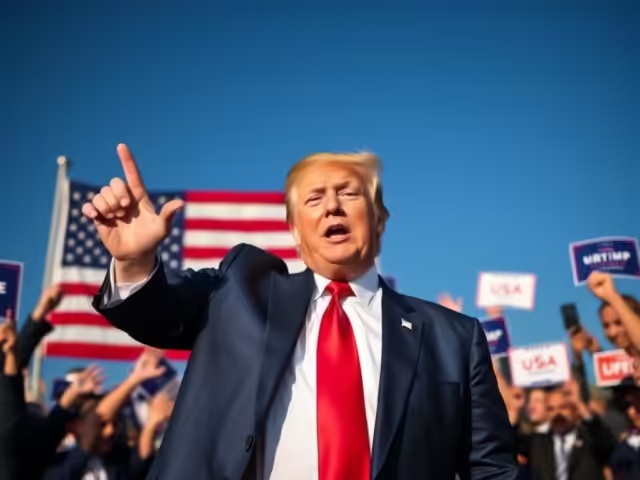
The recent political atmosphere surrounding Donald Trump’s campaign has stirred conversations beyond traditional policy topics. Trump’s potential return to office carries implications not just for the economy but also for sectors like cryptocurrency. The link between his presidency and the growth of digital currencies reveals how political figures can influence new financial trends, particularly in the digital asset market.
Trump’s past statements about cryptocurrency have ranged from skepticism to cautious acceptance. His 2019 stance deemed Bitcoin a “scam” for facilitating illegal activity, yet in recent years, his tone shifted to acknowledging the undeniable influence of digital currencies. As traditional markets fluctuate with each announcement from his campaign, crypto investors are eyeing these changes with anticipation, wondering how his leadership could affect the digital financial sphere.
Policy Shifts and Market Reactions
A Trump win could impact cryptocurrency regulation. While the U.S. government generally remains cautious about regulating crypto, a Trump administration might adopt a more conservative stance. His administration could reframe policies that slow innovation in traditional finance, inadvertently pushing more people toward decentralized digital currencies. Historically, Trump’s policy moves have sometimes led to market shifts, which can have knock-on effects for speculative investments like cryptocurrency.
For instance, during his previous term, market reactions often followed significant policy shifts, creating a volatile but opportunistic space for investors. Trump’s tax policies, in particular, prompted shifts in asset allocation strategies, with investors looking for alternative assets to minimize taxable gains. Cryptocurrencies, with their decentralized and often tax-advantaged appeal, became a favorable option for those seeking a hedge against traditional assets.
Cryptocurrency as a Hedge in Volatile Times
A Trump victory would likely bring some economic uncertainty, with expectations of trade renegotiations and other market-changing policies. Such volatility can benefit digital currencies, often viewed as a hedge against economic instability. Investors could see cryptocurrency as a safe haven during turbulent times, anticipating that it might retain value or even appreciate while traditional assets react to changing fiscal policies.
Bitcoin and Ethereum, being the largest players, often respond positively to uncertainty as users seek alternative stores of value. The younger, tech-savvy demographic driving the crypto space may also lean toward options that remain less tied to any government. Trump’s re-election could amplify this sentiment, encouraging a “flight to safety” into assets considered independent from centralized control.
Possible Trends and Opportunities
If Trump were to adopt a friendlier stance towards crypto, it could open avenues for larger-scale adoption. His pro-business approach could create a more favorable environment for blockchain-based businesses, which might drive up prices due to increased adoption. Meanwhile, speculators might anticipate Trump’s business-friendly policies to loosen constraints on digital asset innovation, fostering a more hospitable atmosphere for cryptocurrency in sectors like fintech and decentralized finance (DeFi).
Conversely, a strict regulatory approach could dampen short-term growth in the cryptocurrency market, particularly if Trump follows through on his past critiques. However, even tighter regulations often lead to higher demand for decentralized, anonymous transactions – a core appeal of many cryptocurrencies. If his policies introduce new financial restrictions, people may seek digital assets as a pathway to retain financial freedom and privacy.
In short, a Trump presidency would almost certainly impact the crypto market, whether through economic policy shifts, tax strategies, or trade-related volatility. Investors in digital currencies would be wise to keep an eye on his policy signals, as the potential for significant shifts in regulation, market sentiment, and even mainstream adoption could follow. As the cryptocurrency industry grows, political leaders, including Trump, will play a role in shaping how the U.S. engages with this rapidly evolving digital economy.




